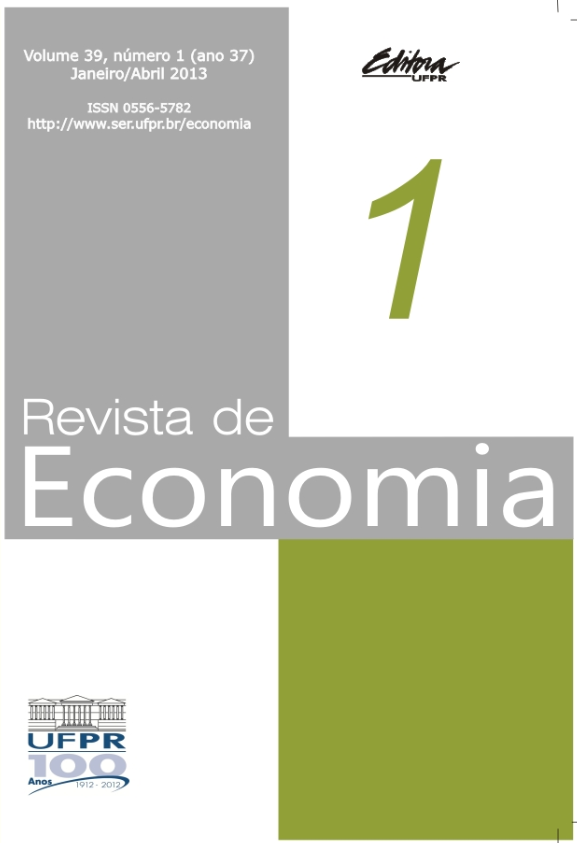Efficiency of Brazilian food and beverage industry post productive restructuring
DOI:
https://doi.org/10.5380/re.v39i1.28693Palabras clave:
Brazilian Food and Beverage Industry, Efficiency, DEA, TobitResumen
This paper aims to analyze the technical efficiency of the Brazilian food and beverage industry post productive restructuring, under the hypothesis that foreign firms would be more efficient than the Brazilian ones. The analytical framework for efficiency was Data Envelopment Analysis (DEA) and Tobit model. DEA only measures the “relative” technical efficiency; that is to say that there is evidence of huge variance in technical efficiency, but we cannot conclude that the absolute level of efficiency is low. It was observed that the companies with high efficiency levels were those with the highest volume of sales. Thus, efficiency was not determined only by the nationality of the firms, since the possibility of the accomplishment of profitable businesses, mainly in association with great retail networks, could be indicated as a determinant for greater efficiency. As for the determinants of efficiency, it was observed that a proper financial administration, characterized by a good use of investments within these companies, was the main factor responsible for an improvement in performance.
Descargas
Publicado
Cómo citar
Número
Sección
Licencia
Ao submeter um artigo, os autores concordam com os seguintes termos:
1. Autores mantêm os direitos autorais e concedem à revista o direito de primeira publicação, com o trabalho simultaneamente licenciado sob a licença Creative Commons (CC BY), que permite o compartilhamento do trabalho com reconhecimento da autoria e publicação inicial nesta revista.
2. Autores têm autorização para assumir contratos adicionais separadamente, para distribuição não-exclusiva da versão do trabalho publicada nesta revista (ex.: publicar em repositório institucional ou como capítulo de livro), com reconhecimento de autoria e publicação inicial nesta revista.




